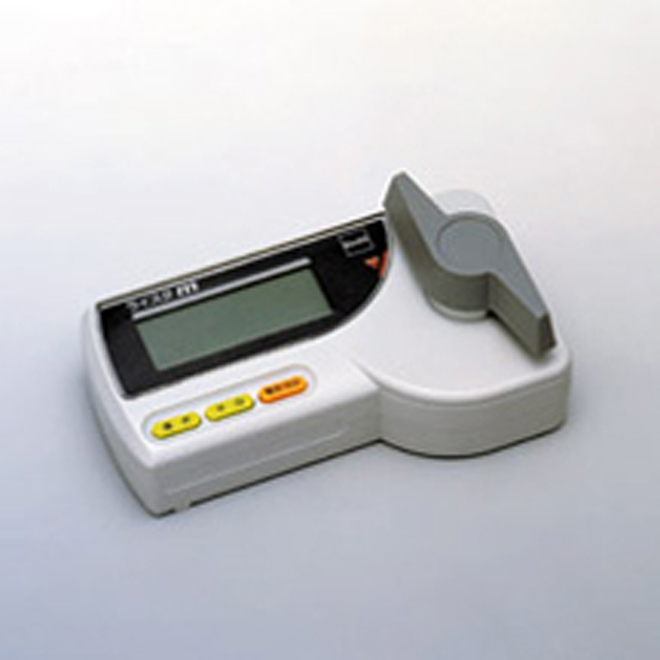The Ultimate Guide to Wetness Meters: A Comprehensive Introduction and Exactly How They Can Conserve You Money
Dampness meters serve as crucial devices in finding and keeping track of moisture material in materials, assisting in stopping expensive damages and guaranteeing the high quality of items. Comprehending the subtleties of various types of wetness meters, their applications, and the prospective cost-saving advantages they use can be a game-changer for companies and specialists alike.
Sorts Of Moisture Meters
Different kinds of moisture meters are available for different applications in various industries. One common type is the pin-type dampness meter, which determines the electric resistance between two pins inserted right into a product. This type appropriates for wood, drywall, and various other building products. Pinless moisture meters, on the other hand, usage electro-magnetic sensing unit plates to scan a bigger location without creating damages to the product's surface. Moisture Meter. These meters are suitable for swiftly examining dampness levels in big locations such as wall surfaces and floors.

Infrared wetness meters gauge the thermal homes of a material to identify its moisture content non-invasively, making them helpful for applications where pin or pinless meters may not be ideal. Comprehending the various types of dampness meters available can help markets select the most appropriate device for their certain moisture dimension needs.

Advantages of Utilizing Wetness Meters
Dampness meters use important benefits in precisely analyzing and checking moisture degrees in diverse materials and atmospheres (Moisture Meter). Among the key advantages of utilizing wetness meters is the avoidance of possible damage triggered by excess wetness. By spotting and addressing high wetness degrees at an early stage, moisture meters help to avoid mold growth, rot, and structural damages in structures, conserving both money and time on repairs. Furthermore, moisture meters aid in making sure the quality of materials during construction or manufacturing processes. By precisely determining moisture material, these devices aid preserve the honesty of wood, drywall, concrete, and various other materials, decreasing the danger of failings or issues.
In addition, using dampness meters can bring about boosted energy effectiveness. By identifying areas with high moisture degrees, such as leaks or poor insulation, changes can be made to boost energy conservation and decrease energy costs. In farming settings, dampness meters play an important duty in maximizing plant yields by enabling farmers to keep an eye on soil wetness degrees and make notified irrigation decisions. Overall, the advantages of using dampness meters span across numerous markets, supplying cost-effective services and promoting far better top quality control practices.
Exactly How to Select the Right Moisture Meter
When choosing a moisture meter, it's crucial to ensure that the meter is appropriate for the certain material you will certainly be screening. Various products have varying electrical residential or commercial properties that can influence moisture readings, so selecting a meter made for your product is critical for precise results. By carefully examining these variables, you can select a wetness meter that meets your needs and supplies accurate moisture measurements for your jobs.
Correct Methods for Wetness Meter Use

Cost Cost Savings Via Moisture Meter Applications
Exactly how can the critical usage of wetness meters lead to considerable cost savings throughout numerous sectors? Wetness meters play a crucial role in price savings by preventing prospective damage and guaranteeing top quality control in different markets. In the farming market, dampness meters aid read more in figuring out the ideal time for gathering crops, avoiding over-drying or excess moisture that can affect the final product's quality. This specific tracking helps farmers avoid unneeded losses and maximize their yield.
In a similar way, in building, dampness meters assist prevent pricey problems by spotting moisture degrees in building materials, such as timber or concrete, which can result in architectural problems otherwise addressed immediately. By determining issue areas early, specialists can take restorative measures to avoid extensive repairs or substitutes, ultimately saving money and time.
Furthermore, in the food handling market, moisture meters are important for monitoring item quality and ensuring compliance with security policies. By accurately determining dampness material in food products, producers can avoid putridity, maintain freshness, and lower waste, resulting in considerable expense financial savings. Generally, the tactical application of wetness meters is an important financial investment that can cause substantial expense decreases and boosted efficiency across different sectors.
Final Thought
In verdict, dampness meters are beneficial tools for detecting and measuring moisture degrees in various materials. By making use of the appropriate wetness meter and following appropriate methods, users can effectively avoid pricey problems caused by excess wetness.
Wetness meters offer as essential devices in detecting and keeping track of moisture web content in products, assisting in protecting against costly damages and making certain the high quality of products. Infrared dampness meters gauge the thermal properties of a material to identify its wetness material non-invasively, making them beneficial for applications where pin or pinless meters might not be appropriate.Moisture meters offer invaluable benefits in precisely evaluating and keeping track of wetness degrees in varied materials and settings. In farming setups, moisture meters play a vital role in optimizing plant returns by enabling farmers to monitor dirt dampness degrees and make informed watering decisions.In conclusion, dampness meters are beneficial devices for identifying and determining wetness levels in various products.